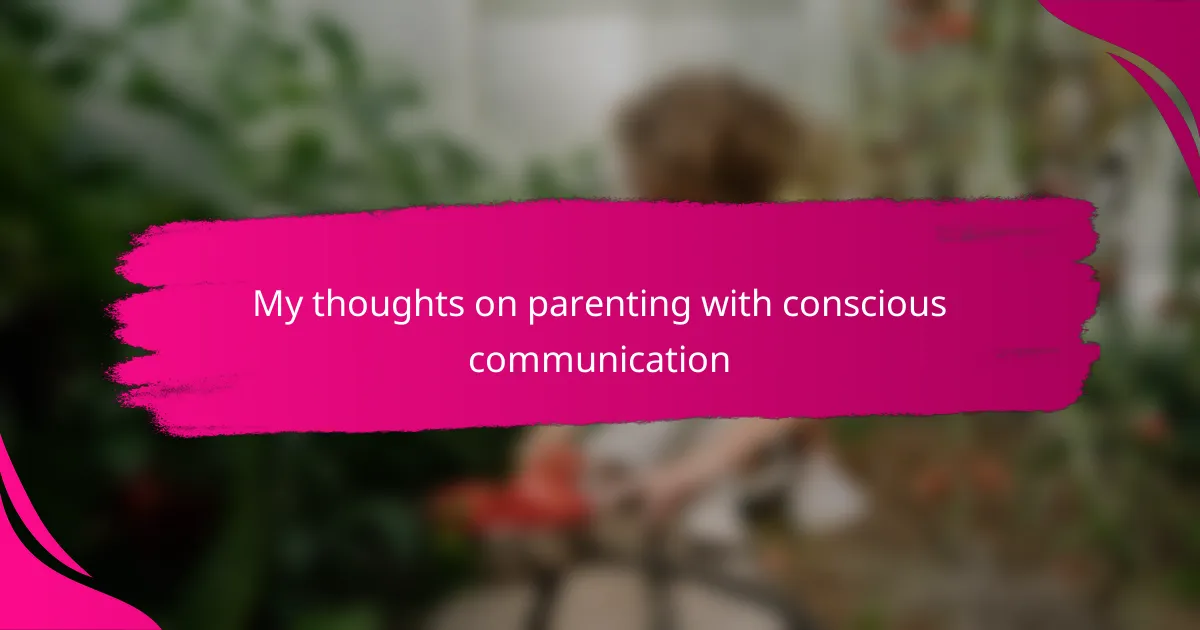Key takeaways
- Conscious communication in parenting involves being fully present, empathetic, and honest, fostering deeper connections with children.
- Practices like reflective listening and “I” statements help create a safe and open environment for sharing feelings without defensiveness.
- Mindfulness and intentional pauses can improve emotional regulation, reducing conflict and building trust between parent and child.
- Consistent small changes in communication practices lead to stronger relationships and a nurturing parenting approach.
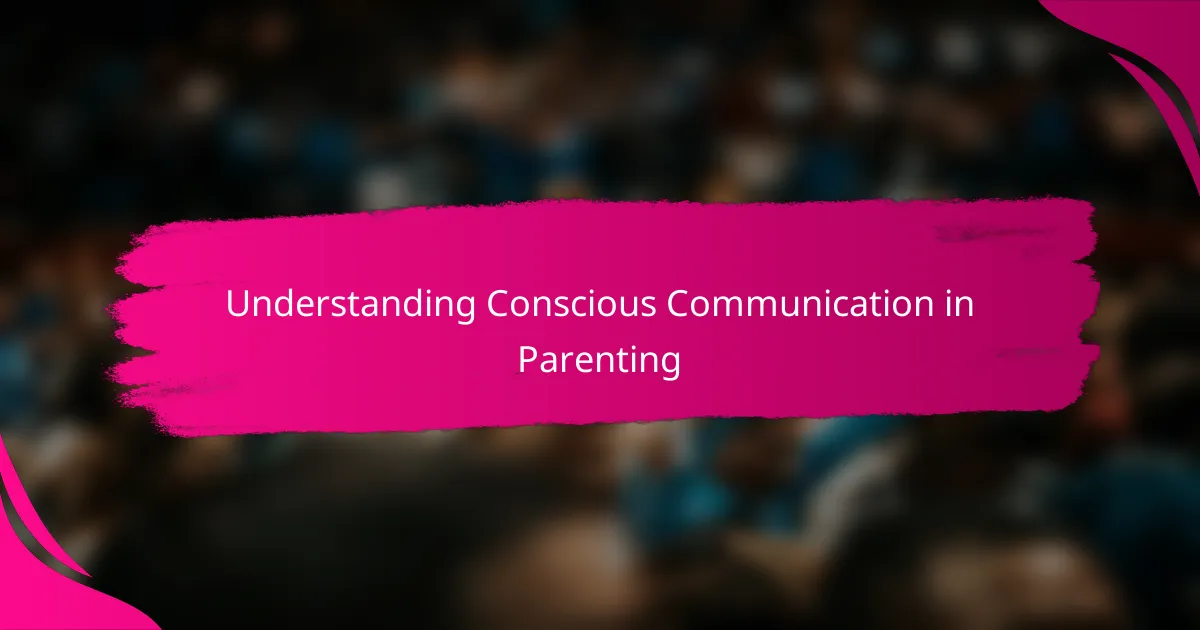
Understanding Conscious Communication in Parenting
When I first started thinking about conscious communication in parenting, I realized it’s about more than just choosing the right words—it’s about truly tuning in to my child’s feelings and needs. Have you ever noticed how a quick response can either soothe or escalate a situation? That moment of intentional listening changed the way I connect with my kids.
I remember a time when my child was upset and instead of rushing to fix the problem, I paused and asked, “Can you help me understand how you’re feeling?” That simple question opened a door to honest dialogue and showed me how much they just needed to be heard. It was a powerful reminder that conscious communication is about presence and empathy, not perfection.
Isn’t it fascinating how our daily conversations can shape our children’s emotional world? I find that when I communicate consciously, I’m not only guiding their behavior but also nurturing their self-worth. It turns parenting into a partnership rather than a power struggle—a shift that has made all the difference in my home.
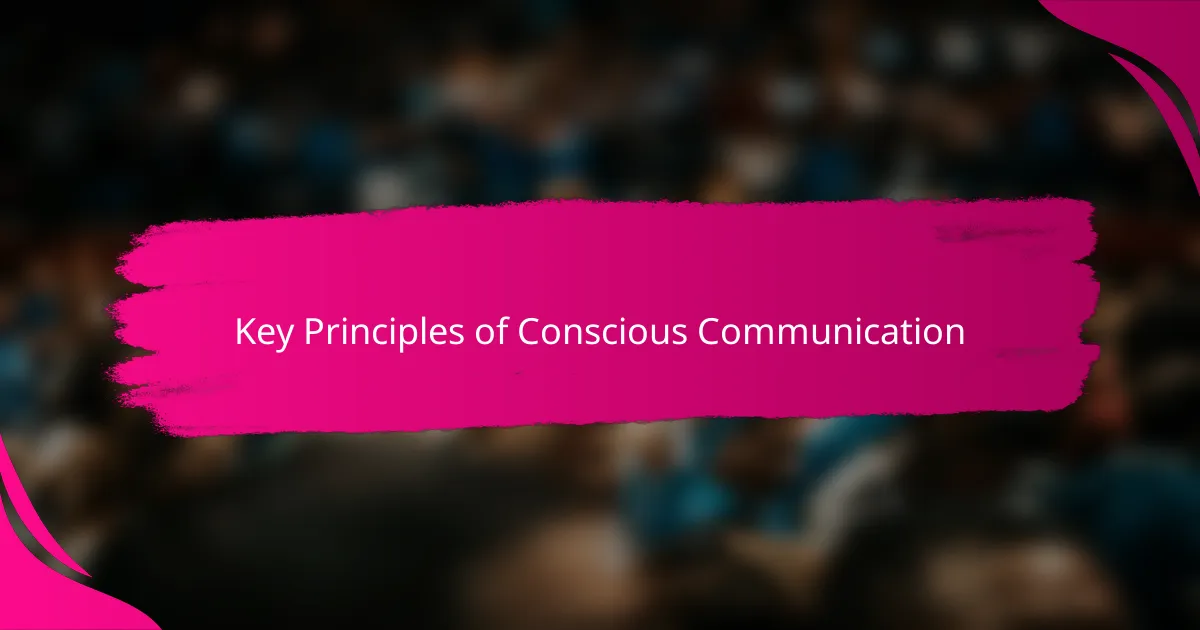
Key Principles of Conscious Communication
One key principle that stood out to me is mindfulness—being fully present in every interaction. I’ve learned that when I let distractions fade and focus solely on my child, even a brief exchange feels more meaningful. Have you noticed how much more your child opens up when they know you’re really there?
Another essential element is honesty paired with kindness. It’s tempting to sugarcoat or avoid difficult truths, but I’ve found that speaking honestly, while considering my child’s feelings, builds trust. Once, admitting my own mistakes during a disagreement led to a surprising moment of connection rather than conflict.
Finally, empathy is a non-negotiable in conscious communication. Instead of jumping in with solutions, I try to step into my child’s shoes and see the world from their perspective. This shift transformed our conversations—frustration gave way to understanding, and I found myself parenting with more patience and heart.
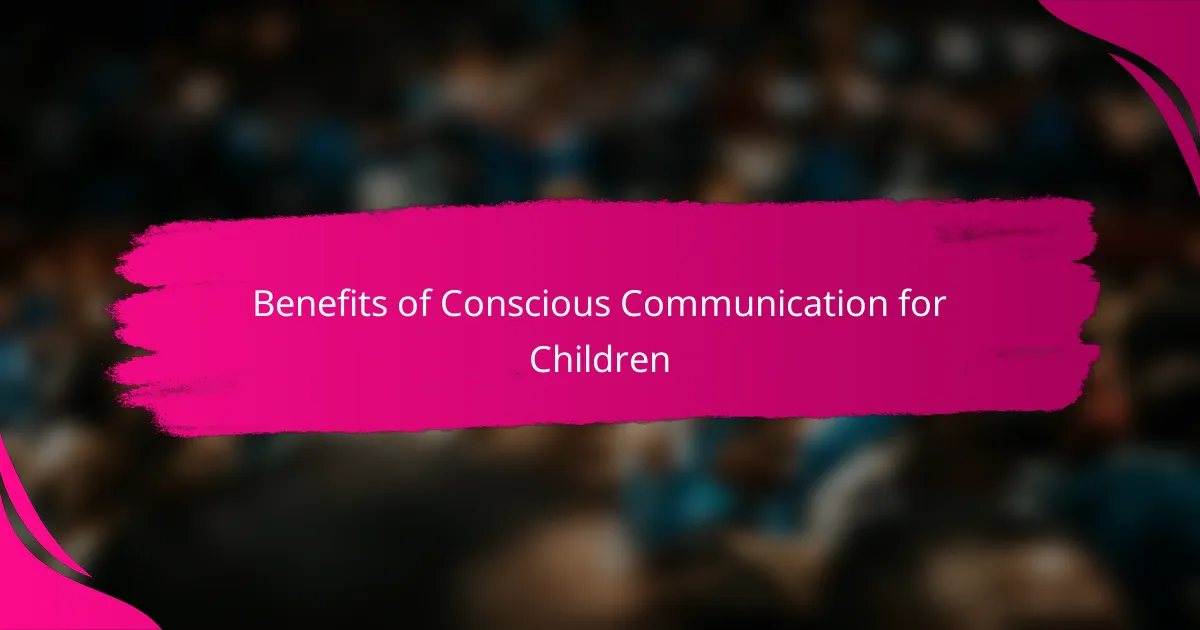
Benefits of Conscious Communication for Children
When I started using conscious communication with my children, I noticed they became more confident expressing their feelings. It’s like they learned that their emotions mattered and that I was a safe space to share them. Have you ever seen a child light up when they know they’re truly heard?
Another beautiful benefit I’ve witnessed is how conscious communication helps children develop better self-regulation. When I stay calm and acknowledge their feelings, they tend to calm down faster too. It’s amazing how this simple shift can reduce tantrums and build emotional resilience.
What strikes me most is how this approach fosters deeper trust and connection. My child feels respected and valued, which lowers defensiveness and opens the door for honest conversations. Isn’t that the kind of relationship we all want with our kids?
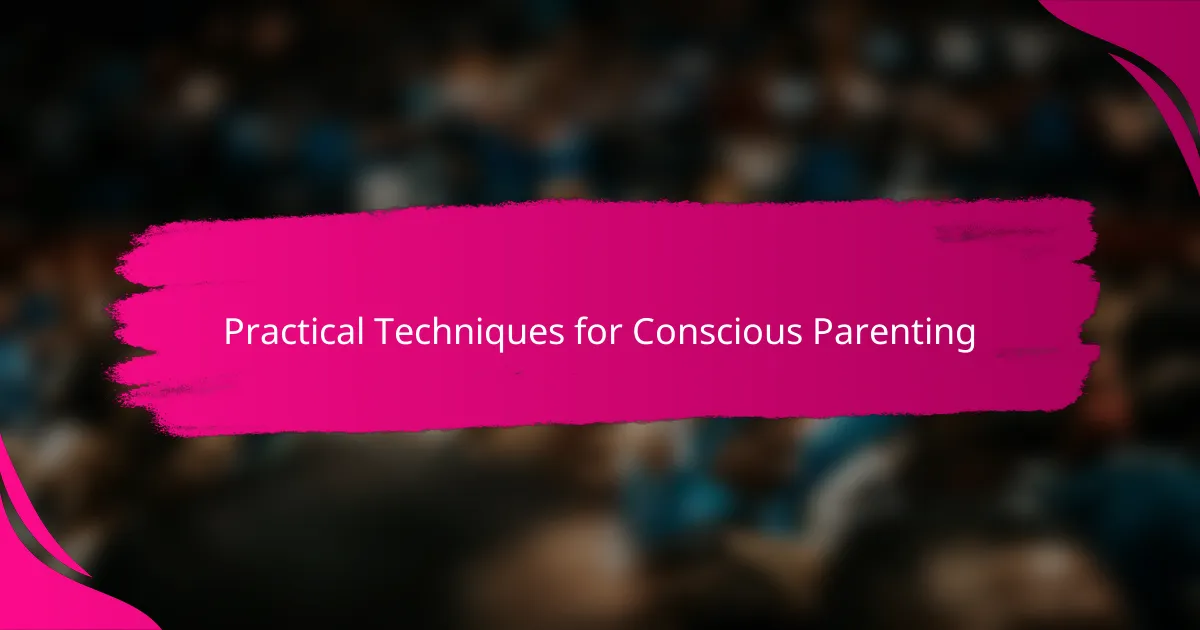
Practical Techniques for Conscious Parenting
One technique I found incredibly effective is the practice of reflective listening. Instead of immediately offering solutions, I repeat back what my child shares in my own words. This not only assures them I’m paying attention but also helps them feel understood. Have you ever noticed how simply hearing our own feelings reflected back can bring clarity and calm?
Another practical approach is setting intentional pauses before responding. In the past, my knee-jerk reactions often escalated tension, but learning to breathe and take a moment changed everything. I now ask myself, “What does my child really need right now?” before speaking, which has made a huge difference in how our conversations unfold.
I also rely heavily on using “I” statements to express feelings without blame. Saying something like, “I feel worried when you don’t tell me where you’re going,” invites openness rather than defensiveness. This simple shift in language has helped me foster a safer and more honest space with my kids—one that I believe any parent can create with practice.
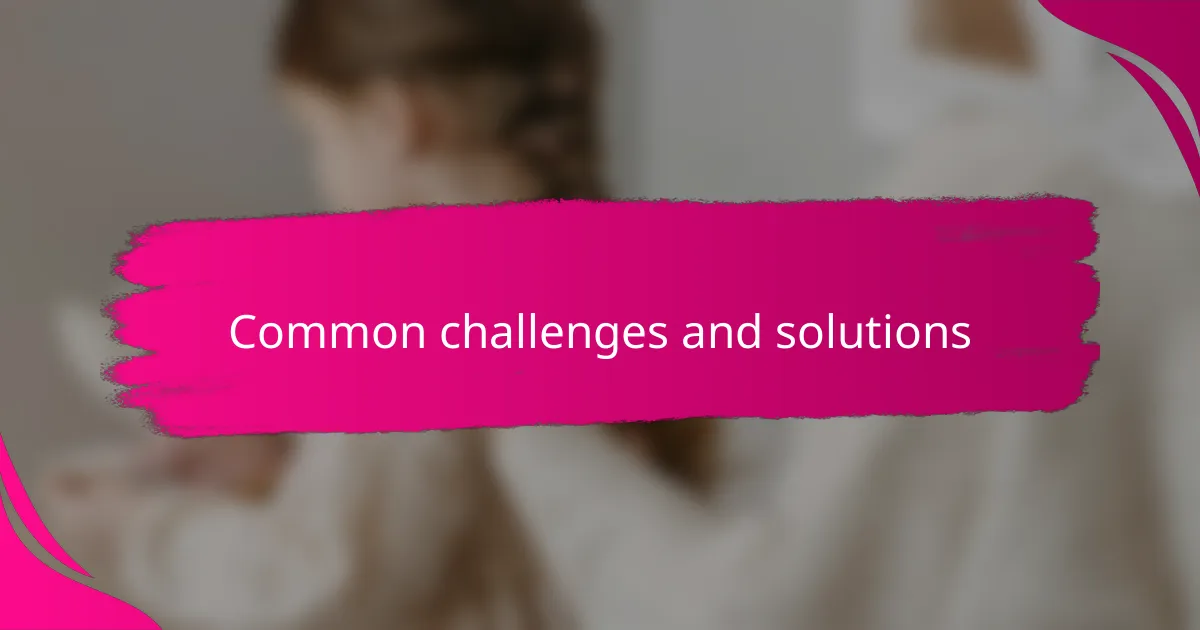
Common Challenges and Solutions
One challenge I often face with conscious communication is managing my own emotions during stressful moments. Have you ever noticed how easy it is to slip back into old habits when you’re tired or overwhelmed? I found that recognizing my triggers and taking a mindful pause before responding helps me stay grounded and keeps the conversation from spiraling.
Another hurdle is balancing honesty with kindness. I used to worry that being too direct might hurt my child’s feelings, but over time, I realized that gentle honesty actually builds trust. For example, when I admitted that I didn’t have all the answers, my child appreciated the transparency and felt more comfortable sharing their struggles.
Sometimes, the biggest obstacle is simply consistency. It’s tempting to revert to quick fixes or authoritarian tones when life gets hectic. Yet, committing to small, daily practices—like reflective listening or “I” statements—has made a noticeable difference. What small change can you start with today to make your communication more conscious? I encourage you to try, because those little shifts add up to stronger connections.
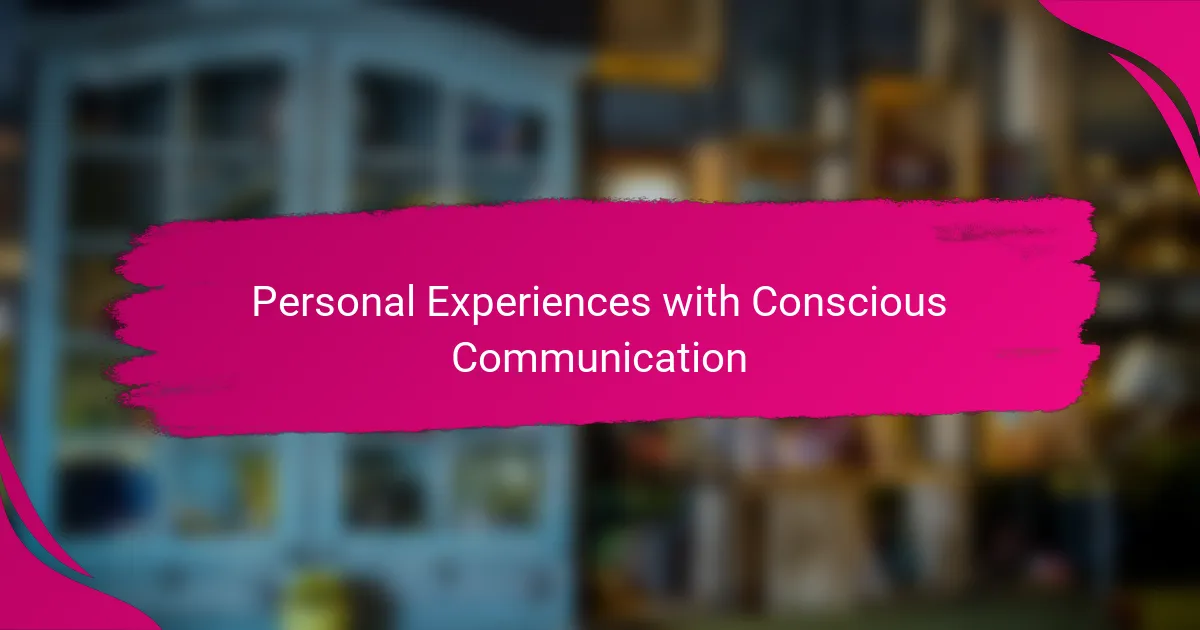
Personal Experiences with Conscious Communication
There was a moment when my child came home frustrated after school, and instead of diving into problem-solving, I simply sat with them and asked, “What’s on your mind?” That pause, though brief, sparked a conversation that felt genuine and opened a space for vulnerability. Have you experienced how just being present can change the whole dynamic between you and your child?
I’ve also noticed how conscious communication sometimes means stepping back from my own assumptions. Once, I misread my child’s silence as defiance, but by gently asking about their feelings, I discovered they were overwhelmed and needed support. That realization shifted my response from frustration to compassion, reminding me how essential empathy truly is in parenting.
Some days it’s challenging to keep that awareness alive, especially when emotions run high. But reflecting on those small wins—like a heartfelt exchange or a calm conversation after a tough moment—keeps me motivated. Isn’t it incredible how these intentional interactions slowly build trust and deepen our bond in ways words alone can’t?
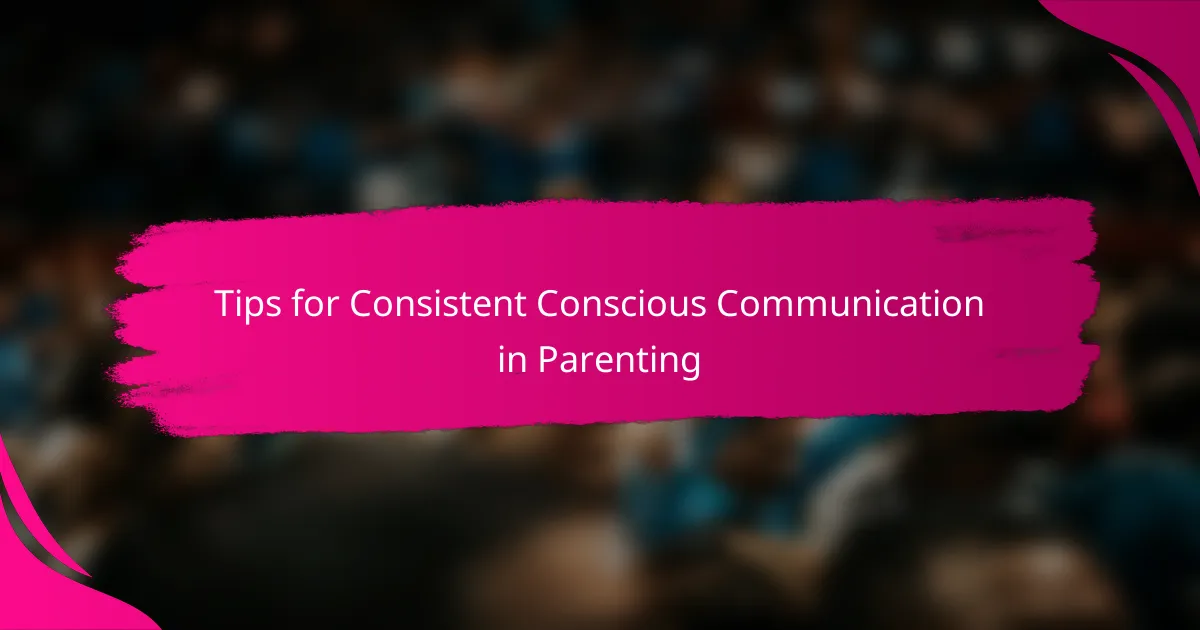
Tips for Consistent Conscious Communication in Parenting
One habit that transformed my communication was setting a daily intention to truly listen. I started each morning reminding myself to be patient and present, even during the chaos. Have you tried beginning your day this way? It shifted small moments into meaningful connections.
I also found it helpful to check in with myself before responding to my kids. Pausing—sometimes just for a breath or two—helps me respond thoughtfully instead of reacting impulsively. This simple practice saved many conversations from spiraling and made me feel more in control during tough parenting moments.
Using consistent language like “I” statements became a game-changer. Instead of saying, “You never listen,” I’d say, “I feel worried when I can’t hear you.” Have you noticed how this invites openness rather than defensiveness? It’s a small change that creates a safer space for honest dialogue every time.
